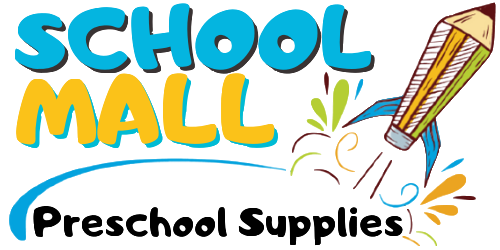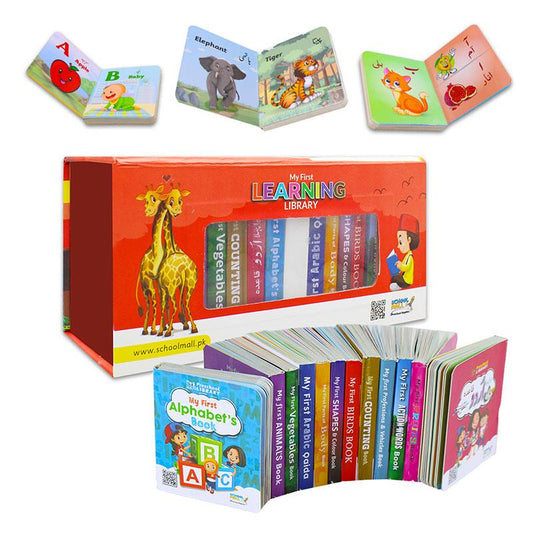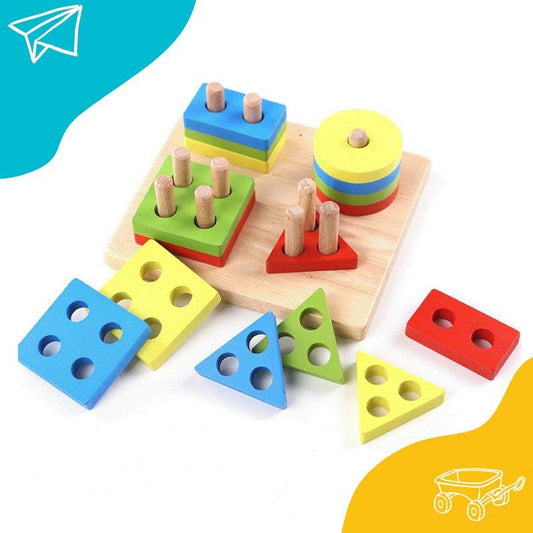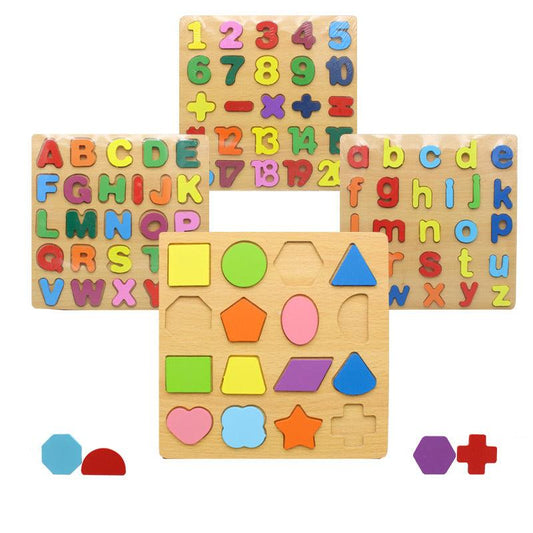As parents, we all want what’s best for our children, especially when it comes to their education. However, recent studies and educational experts suggest that sending children to formal school too early—before the age of 5—might not be the best decision for their cognitive and emotional development. Instead, focusing on interactive learning through educational toys may offer better results in these early formative years.
Here’s why delaying school enrollment and opting for educational toys could benefit your child:
- The Importance of Play in Early Development
Children, especially in their toddler years, learn best through play. Play isn’t just a way to keep them entertained—it’s essential for developing skills like problem-solving, communication, and social interaction. Educational toys, such as puzzles, building blocks, and interactive games, can stimulate critical thinking while making learning fun and engaging.
Through play, children learn to explore their environment, exercise creativity, and build a solid foundation for skills they will need later in life, such as collaboration and empathy. Early school environments, on the other hand, may put undue pressure on structured learning, limiting this natural growth process.
- Development at Their Own Pace
Children develop at different rates, and sending them to school before the age of 5 might force them into an environment where they’re expected to follow a one-size-fits-all curriculum. Educational toys allow children to progress at their own pace, giving them the freedom to learn without the pressure of meeting classroom expectations.
For example, activities such as sorting shapes or counting objects with toys can be done repeatedly until a child fully grasps the concept, ensuring a deep understanding instead of rushing through a lesson to keep up with peers.
- Nurturing Creativity and Imagination
Educational toys are designed to stimulate a child’s imagination. Toys like building blocks, art sets, and role-playing games encourage children to use their creativity in ways that are often not possible in a structured classroom setting.
Before the age of 5, children's brains are incredibly flexible, and giving them the space to imagine, create stories, and engage in pretend play can help them develop critical thinking, innovation, and problem-solving skills—key attributes that will help them succeed in school later.
- Reducing Stress and Anxiety
For many children, starting school at a very young age can be overwhelming and stressful. The sudden change in routine, interaction with strangers, and the pressure to sit still for long periods can create anxiety. Studies show that children who face such stress early on may struggle to enjoy learning later in life.
On the other hand, playing with educational toys at home or in a familiar setting allows children to explore new concepts without the added stress of a formal school environment. They are free to experiment, fail, and try again without judgment or fear.
- Developing a Love for Learning
By engaging children with educational toys, you can help them develop a natural love for learning. Instead of associating learning with rigid schedules, rules, and tests, they begin to view it as a fun and rewarding experience. This can have long-lasting effects on their attitude toward education, helping them approach school with enthusiasm once they’re ready.
Introducing toys that focus on early literacy, numeracy, and problem-solving fosters a positive association with learning, which can be far more beneficial than the structured academic focus of traditional schooling for young children.
- Building Social Skills Without Pressure
Social skills are an essential part of early development, and children do benefit from interacting with peers. However, forcing socialization in a school setting may not always be ideal. Before age 5, children can build social skills by engaging in cooperative play with educational toys alongside siblings, friends, or parents in a low-pressure environment.
Group play with educational toys helps children learn how to share, take turns, and solve problems together—all while enjoying the fun of playing. This prepares them for social interaction at school, but without the added pressure of meeting academic or behavioral standards.
- A Gradual Transition to Formal Education
Delaying school enrollment doesn’t mean denying education; it simply means introducing it in a more flexible, child-centered way. Educational toys can bridge the gap between home learning and formal education. By the time children turn 5 or older, they’ll be more prepared for the structure of a school day, emotionally and academically.
Conclusion: Make Play the Foundation of Early Learning
There’s no need to rush a child’s introduction to formal schooling. Instead, by focusing on educational toys and play-based learning, you’re giving your child a solid foundation that will benefit them for years to come. Toys designed to enhance learning allow children to explore the world at their own pace, foster creativity, reduce stress, and develop a love for learning—all of which set them up for future success in school and beyond.
Let’s rethink the traditional school timeline and give our children the time and space they need to grow through the magic of play.





